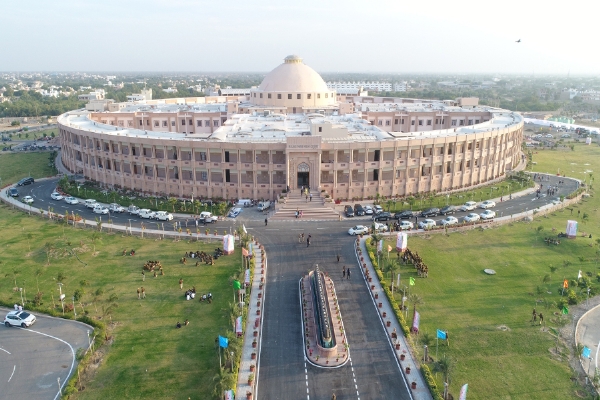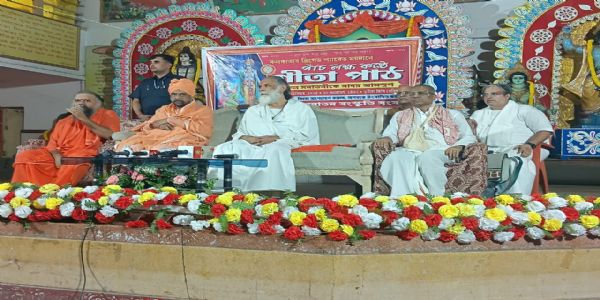
Jodhpur, October 11 (H.S.) – The Rajasthan High Court has upheld the decision of Jai Narain Vyas University to terminate the services of an assistant professor. Justice Rekha Borana, while dismissing the petition of Preeti Kalla, said that not returning to duty for three consecutive years after the completion of study leave amounts to deliberate absence and leaving the job. Therefore, the decision to terminate her employment is correct.
Preeti Kalla, a resident of the New Power House Road area, was appointed as a part-time teacher at JNVU on February 14, 1992. Later, she was selected through regular recruitment and appointed as Assistant Professor in Electronics and Communication on August 12, 1999. On August 28, 2000, she was made permanent in the same post. In 2002, Kalla applied for study leave to pursue an M.E. degree, which was approved for one year on October 22, 2002, and later extended for another year. She had also submitted a bond as per rules. After completing her M.E. degree within the given time, she did not return to duty, citing the reason of pursuing a Ph.D.
University sent notice
In July 2005, the university registrar sent her a letter asking her to join duty within ten days, otherwise it would be considered deliberate absence and action would be taken. In response, she requested the Vice-Chancellor to grant her three years of extraordinary leave to complete her Ph.D. On November 10, 2006, another letter was sent saying that even after the completion of study leave, she had not joined duty and was again asked to join within ten days. In reply, she again requested an extension of study leave. Later, on April 26, 2007, the university informed her that the request for extension had been rejected as per the Syndicate Resolution of March 11, 2007, and warned that if she did not join within one month, her employment would be terminated. Finally, on July 30, 2007, her job was terminated. She challenged this order in the High Court.
Arguments in court
Kalla’s lawyers, R.S. Saluja and Achraj Saluja, argued that the Syndicate Resolution did not contain any instruction for termination and that the proper procedure for ending employment was not followed. They said that if the study leave could not be extended, she should at least have been granted extraordinary leave, and her absence could have been treated as such.
The university’s lawyer, P.R. Singh Jodha, argued that it was mandatory to rejoin duty after the completion of study leave. Kalla never formally applied for Ph.D. study leave, she only requested an extension. As per rules, study leave granted for one course cannot be extended for another course. She had also not completed the required years of service to be eligible for extraordinary leave. According to the rules, a total of three years of study leave can be granted during the entire service period, and Kalla had already taken two years. She was clearly informed that her request for extension was rejected, yet she did not return to duty. Therefore, this was a case of deliberate absence.
---------------
Hindusthan Samachar / Jun Sarkar







